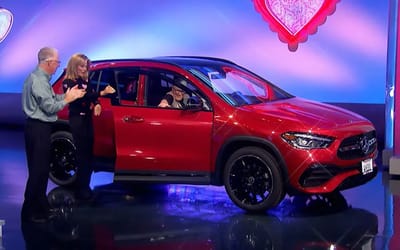Elon Musk wants to use a brain chip to create real-life cyborgs
Published on Sep 26, 2023 at 4:52 PM (UTC+4)
by Amelia Jean Hershman-Jones
Last updated on Sep 27, 2023 at 10:29 AM (UTC+4)
Edited by
Kate Bain
The Elon-Musk-led brain-implant startup, Neuralink, has received the go-ahead from an independent review board to start testing its brain implant technology on humans.
They received approval from the FDA (Food and Drug Administration) back in May.
They’ve started the move to recruit human test subjects with paralysis to trial the already-approved investigational device exemption (IDE) for an six-year clinical study.
The primary focus for the human trials will be quadriplegia caused by vertical spinal cord injuries or ALS.
READ MORE! Elon Musk’s brain chip company gets approval to test on humans
However Musk at the helm of Neuralink has previously made some controversial claims about brain-computer interfaces (BCIs).
He said they could boost human abilities and enable direct telepathic interaction with artificial intelligence.
Labelled “The PRIME Study” (short for Precise Robotically Implanted Brain-Computer Interface), it will see how it can assist individuals with paralysis control devices.
The start-up is currently looking for participants aged 22 or older with a “consistent and reliable caregiver” who will also take part.

It’s unclear how many participants Musk and his Neuralink team are looking for or when the study will start.
However we do know that it will begin with nine meetings with the research team over 18 months.
Participants will then be required to commit a phase of two-hour-per-week minimum for brain-computer interface research sessions.
A follow-up 20 visits will then happen over the next five years.

First PRIME will study the N1 implant which “records and transmits brain activity with the goal of enabling you to control a computer.”
Secondly, it evaluates the R1 robot, responsible for inserting the device surgically.
Third, it assesses the N1 User App, which connects to N1 and “decodes movement intention from brain signals recorded by the N1 Implant, allowing you to control a computer with your thoughts.”
Musk said in a post on X (formerly known as Twitter) that the brain chip “will ultimately have the potential to restore full body movement”.
The billionaire asked his followers to “imagine if Stephen Hawking had had this”.
He also unveiled Neuralink’s vision for “improving human to AI (and human to human) bandwidth”.
He hopes this will “play a role in AI risk civilizational risk reduction”.
Participants’ compensation will only cover “study-related costs,” such as travel expenses to and from the lab.
If you want to volunteer for the in-human trial, click here.
The move to merge man with machine in Musk’s “first-in-human clinical trials” could pose serious risks for those involved.
Neuralink and Musk were criticised in February 2022.
The Physicians Committee for Responsible Medicine filed a complaint for the way lab animals were being treated.

Neuralink was accused of “invasive and deadly brain experiments.”
In December, federal authorities launched an investigation into alleged violations of animal welfare regulations by Neuralink.
Documents suggested roughly 1,500 animals, including rats, monkeys, pigs, and mice had been euthanised since 2018.
Neuralink claimed that the rhesus macaque monkeys under its care were “respected and honoured”.
Musk made the claim on X earlier this month that “no monkey has died as a result of a Neuralink implant.”
DISCOVER SBX CARS: The global premium car auction platform powered by Supercar Blondie
With a dual English and French degree and NCTJ diploma, Amelia began her career doing award-winning writing and editing for titles and brands spanning Women's Health, the Telegraph, Boots, and Vitality. Amelia joined the SB Media family in September of 2023, bringing her expertise in SEO and reader takeaway. As Lead Editor, her superpower is translating technical jargon about the mechanical workings of a supercar into a shareable story.





